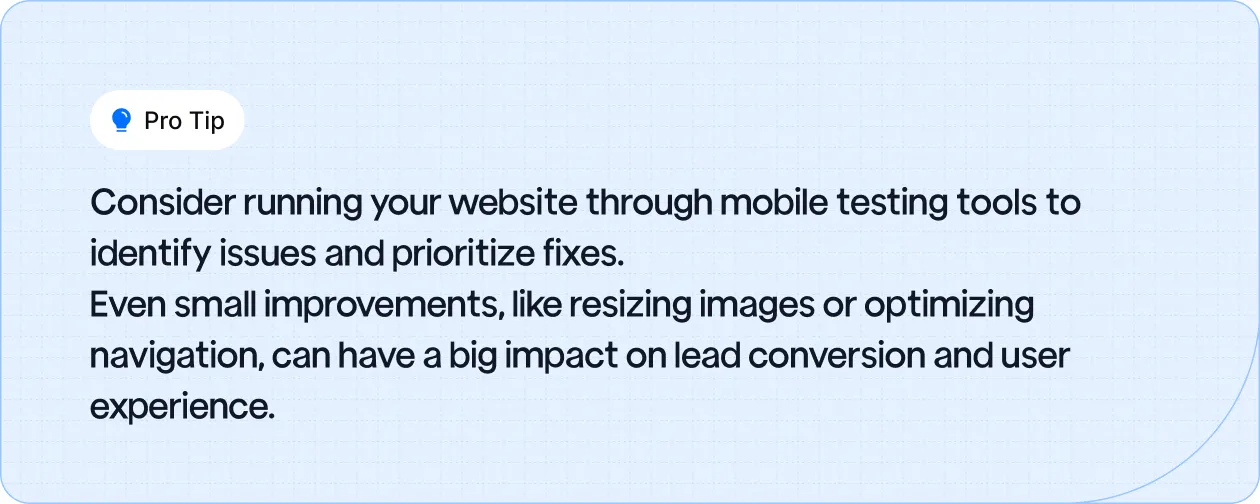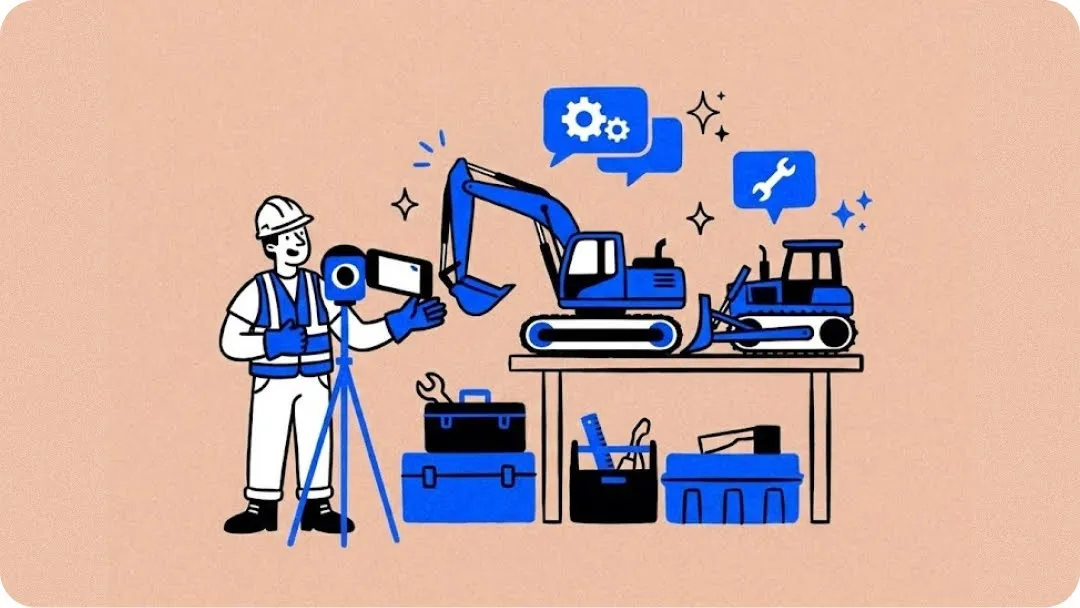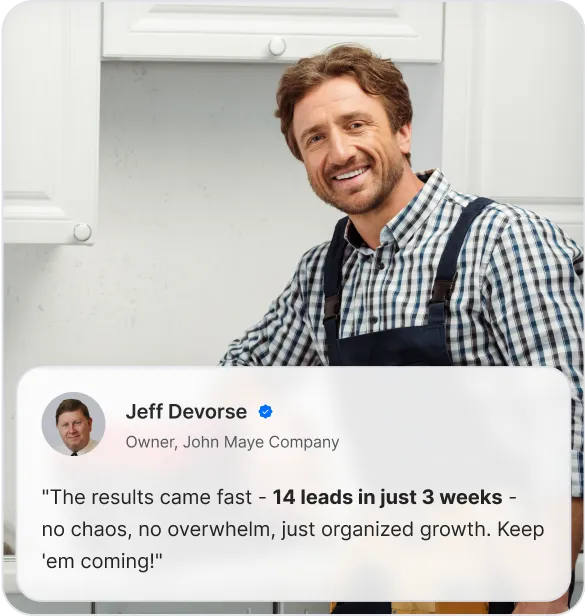You know the frustration: pouring thousands into marketing campaigns only to attract leads who don’t understand the nuances of your metal fabrication business. Engineering teams aren’t impressed by flashy brochures; they care about weld integrity, CNC precision, and custom tolerances.
Procurement managers won’t respond to generic pitches; they need proof you can meet project specifications on time, every time. Traditional marketing tactics often leave you shouting into a void, wasting time and budget on contacts who will never convert.

This guide is for metals manufacturers who need a marketing strategy that targets the exact buyers who value precision, reliability, and technical expertise.
1. The Future Is Digital – Don't Get Left Behind
Digital disruption is no longer optional in metals manufacturing. Buyers now research suppliers online, compare multiple vendors, and often make decisions before ever speaking to a salesperson.
Companies embracing digital tools are more visible, more credible, and able to engage prospects faster.
Why It Works:
Digital marketing allows you to:
- Showcase your machinery, processes, and capabilities online
- Engage prospects in real-time through chat, demos, or webinars
- Automate parts of the sales funnel, saving your team time
Actionable Tip: Develop a digital marketing plan that includes:
- SEO optimized content to attract relevant buyers
- Social media campaigns highlighting projects and technical expertise
- Virtual tours or video demos showing your manufacturing process
2. Make Your Business Easy to Find with SEO
If buyers can’t find you online, they’ll find your competitors. SEO ensures your company appears in search results when decision-makers look for niche services like “CNC metal cutting” or “stainless steel fabrication.”
Why It Works:
- 87% of industrial buyers use search engines to learn about products they need.
- Appearing for highly targeted keywords attracts qualified leads actively seeking your services
Actionable Tip:
- Optimize website pages, blog posts, and product descriptions with industry-specific keywords
- Include location-based terms to capture regional prospects
- Make sure metadata (titles, headers, alt-text) aligns with search intent
Consider writing long-form content like “How to Reduce Material Waste in CNC Milling” or “Best Practices for Custom Steel Fabrication” to capture buyers searching for solutions, not just products.
3. Educate, Don’t Just Sell, to Build Trust
Engineers and procurement teams want actionable insights. Content marketing positions your company as a trusted advisor rather than just another vendor.
Why It Works:
- Builds credibility with technical audiences
- Provides practical solutions for common pain points
- Keeps your brand top-of-mind during long sales cycles
Actionable Tip:
- Case studies demonstrating real-world problem-solving
- Step-by-step guides addressing material selection or fabrication challenges
- Webinars that show techniques and process improvements
Use downloadable resources like checklists or CAD templates that engineers can reference during internal discussions. This subtly builds authority while giving prospects something useful.
4. Leverage Social Media to Build Real Connections
Social media is a tool for engagement, relationship-building, and thought leadership in metals manufacturing. LinkedIn, Twitter, and Instagram can help you reach the right professionals.
Why It Works:
- Positions your brand as a technical authority
- Engages engineers, buyers, and procurement teams directly
- Expands visibility beyond traditional sales channels
Actionable Tip:
- Share project updates, industry insights, and behind-the-scenes content
- Join and contribute to LinkedIn groups relevant to metals manufacturing
- Post technical tips, like “Optimizing Weld Quality for Structural Steel Projects,” to demonstrate expertise
Use short videos or infographics that visually explain processes; these are often shared internally within engineering teams, increasing your organic reach.
5. Is Your Website Working Hard Enough to Convert Visitors?
Your website is your digital salesperson, working 24/7. For metal manufacturers, they need to communicate their capabilities clearly and persuade visitors to take action.
Why It Works:
- First impressions often happen online
- Fast, mobile-friendly websites with clear CTAs improve conversion rates
- Project galleries and client testimonials build trust
Actionable Tip:
- Include RFQ forms, detailed product pages, and video demonstrations
- Optimize navigation and page speed to reduce friction
- Feature certifications like ISO or AWS to reassure technical buyers
Use case-specific landing pages targeting different buyer personas (e.g., procurement vs. engineering) to guide visitors to relevant content quickly.
6. Lead Scoring Lets You Focus on the Right Prospects
Not all leads are created equal. Lead scoring prioritizes prospects most likely to convert, helping your sales team focus on high-value opportunities.
Why It Works:
- Identifies high-potential leads
- Improves efficiency by reducing time spent on unqualified leads
- Strengthens trust by providing targeted follow-ups
Actionable Tip:
- Track email opens, website visits, and content downloads
- Assign scores to leads based on engagement and project potential
- Segment leads for personalized outreach campaigns
Integrate lead scoring with marketing automation so nurturing workflows can continue for lower-scoring leads without manual effort.
Also Read: The Best Marketing Methods for Small Manufacturers: 11 Proven Strategies for Success
7. Paid Ads Put Your Business in Front of the Right People
Paid campaigns like PPC and LinkedIn ads help metals manufacturers target the exact decision-makers searching for their services.
Why It Works:
- Reaches buyers who are actively evaluating options
- Focuses on specific industries, roles, and geographic locations
- Complements organic SEO for faster lead generation
Actionable Tip:
- Run targeted PPC campaigns on Google Ads or LinkedIn
- Use retargeting to re-engage visitors who didn’t convert initially
- Test ad creatives to find what resonates with your audience
Create landing pages specifically for ad campaigns to increase conversion rates and track ROI more accurately.
8. Keep Leads Hooked with Email Marketing
Email marketing nurtures prospects and maintains relationships over long sales cycles, which is critical in metals manufacturing.
Why It Works:
- Keeps your brand top-of-mind
- Provides ongoing education and value to buyers
- Supports loyalty and repeat business
Actionable Tip:
- Segment lists by role, purchase history, or project type
- Send targeted newsletters, product updates, and technical tips
Automate triggered emails based on user behavior, like downloading a brochure or attending a webinar, to maintain engagement without extra manual effort.
9. Trade Shows and Events Are Still Worth It
In-person interactions allow prospects to see your capabilities and build trust, something digital alone can’t achieve.
Why It Works:
- Strengthens relationships with buyers
- Demonstrates capabilities in real-time
- Generates high-quality leads
Actionable Tip:
- Exhibit at key industry events like FABTECH or MetalCon
- Use interactive demos and QR codes to collect contact information
- Follow up promptly with leads after the event
Combine live events with digital campaigns, share photos, video snippets, and post-event summaries to extend engagement beyond the show floor.
10. Let Analytics Show You What’s Really Working
Without data, marketing is guesswork. Analytics reveal which campaigns perform and where you should focus next.
Why It Works:
- Tracks website traffic, conversions, and engagement
- Highlights high-performing channels and content
- Guides strategic adjustments to improve ROI
Actionable Tip:
- Use tools like Google Analytics, HubSpot, or Marketo
- Regularly review metrics such as conversion rates, lead quality, and user behavior
- Optimize campaigns based on insights
Visualize data with dashboards to share insights across your team. Highlight top-performing campaigns, then double down on strategies that work.
Sales and Marketing Should Be a Team, Here’s Why
In many metals manufacturing companies, sales and marketing often work in silos, both aiming for growth but rarely speaking the same language.
Marketing might be producing campaigns, emails, and trade show content, while sales struggles to follow up on leads that weren’t qualified or nurtured properly. The result?
- Wasted time and resources
- Missed opportunities with qualified buyers
- Prospects receiving inconsistent messaging
Consider a typical scenario: an engineer is evaluating suppliers for a complex CNC project. Marketing sends a general newsletter highlighting your capabilities, while sales calls are made without knowing what the prospect has already seen.
Mixed messages confuse the buyer, making competitors who present a cohesive experience far more appealing.
When sales and marketing operate as a single unit:
- Marketing creates content that addresses the exact challenges buyers are facing.
- Sales provides real-time feedback from the field on which messages resonate and which don’t.
- Leads are better qualified, so sales spend time engaging prospects who are more likely to convert.
- The entire customer journey feels seamless, reinforcing your company as a reliable, knowledgeable partner.
Some manufacturers implement weekly alignment sessions:
- Marketing previews upcoming campaigns and content plans.
- Sales shares insights from client interactions and feedback on what works.
- Teams collaborate on lead scoring, nurturing plans, and follow-up strategies.
The long-term results are clear:
- Higher lead-to-conversion ratios
- Shorter sales cycles
- Stronger brand perception
- Prospects feel like they are engaging with a coordinated, expert team, not a fragmented organization
Make Sure Your Website Works on Any Device: It’s More Important Now Than Ever
Today’s industrial buyers research suppliers on smartphones, tablets, and laptops. If your website doesn’t load correctly or display important content properly on mobile devices, you could be losing qualified leads before they even get in touch.
A mobile-optimized website signals professionalism and reliability to engineering and procurement teams who expect quick access to technical details, specifications, and contact options.
Key Reasons Mobile Optimization Matters for Metals Manufacturers:
- Buyers can view product catalogs, project galleries, and technical specs from anywhere
- Easy-to-use forms and CTAs make it simple to request quotes or additional information
- Faster load times reduce bounce rates and keep potential clients engaged
What to Focus On for a Mobile-Friendly Experience?
- Load Speed: Pages should load in 2-3 seconds to prevent frustration
- Navigation: Menus, buttons, and links should be easy to click on smaller screens
- Forms: Ensure RFQs and contact forms are accessible and simple to fill out
- Content Display: Technical diagrams, images, and videos should scale correctly

Turning Your Marketing Strategy into a Long-Term Competitive Advantage
The future of metals manufacturing marketing is embracing a digital-first mindset, building meaningful relationships, and making data-driven decisions that generate measurable results.
Success comes from engaging the right buyers at the right time, providing educational content, and ensuring every interaction reflects your expertise.
Many manufacturers feel frustrated with wasted ad spend, scattered campaigns, and unqualified leads that never convert. A DIY approach to marketing isn’t enough to compete in today’s digital and technical landscape.
Gushwork understands these challenges and integrates AI-powered tools to streamline campaigns, optimize lead nurturing, and drive measurable growth.
FAQs
Q1. What is marketing for metals manufacturing, and why is it different from general B2B marketing?
A1. Marketing for metals manufacturing focuses on reaching technical buyers like engineers, procurement teams, and project managers. Unlike generic B2B marketing, it emphasizes demonstrating technical expertise, showcasing custom fabrication capabilities, and addressing complex specifications, tolerances, and project deadlines.
Q2. How can metal manufacturers generate qualified leads without wasting budget on unqualified prospects?
A2. By combining targeted SEO, lead scoring, and content marketing, metals manufacturers can attract prospects who actively search for niche services like CNC cutting or custom steel fabrication. Prioritizing high-value leads ensures sales teams focus on prospects most likely to convert, reducing wasted ad spend.
Q3. Which digital channels are most effective for metals manufacturing marketing?
A3. Key channels include:
- SEO & Content Marketing: For engineers searching for technical solutions online
- LinkedIn & Industry Social Platforms: To engage decision-makers
- Email Marketing: To nurture leads over long project-based sales cycles
- Paid Ads (PPC & Retargeting): To reach high-intent prospects efficiently
Q4. How important is a mobile-optimized website for metals manufacturers?
A4. Extremely important. Engineering and procurement teams often research suppliers on mobile devices. A responsive website ensures easy access to product specs, project galleries, RFQs, and technical resources, which improves lead conversion and strengthens credibility.
Q5. Can trade shows still drive leads in the digital age for metal fabrication businesses?
A5. Yes. Trade shows like FABTECH or MetalCon allow manufacturers to demonstrate capabilities in real-time, build trust with buyers, and collect high-quality leads. Combining in-person events with digital follow-ups extends engagement and maximizes ROI.
Q6. How can metal manufacturers measure the effectiveness of their marketing campaigns?
A6. Analytics tools like Google Analytics, HubSpot, or Marketo help track website traffic, lead conversions, campaign performance, and content engagement. Regular review of these metrics allows manufacturers to optimize campaigns, refine strategies, and improve ROI.





















.webp)








.webp)
.svg)


.svg)
.svg)
.svg)




.svg)


